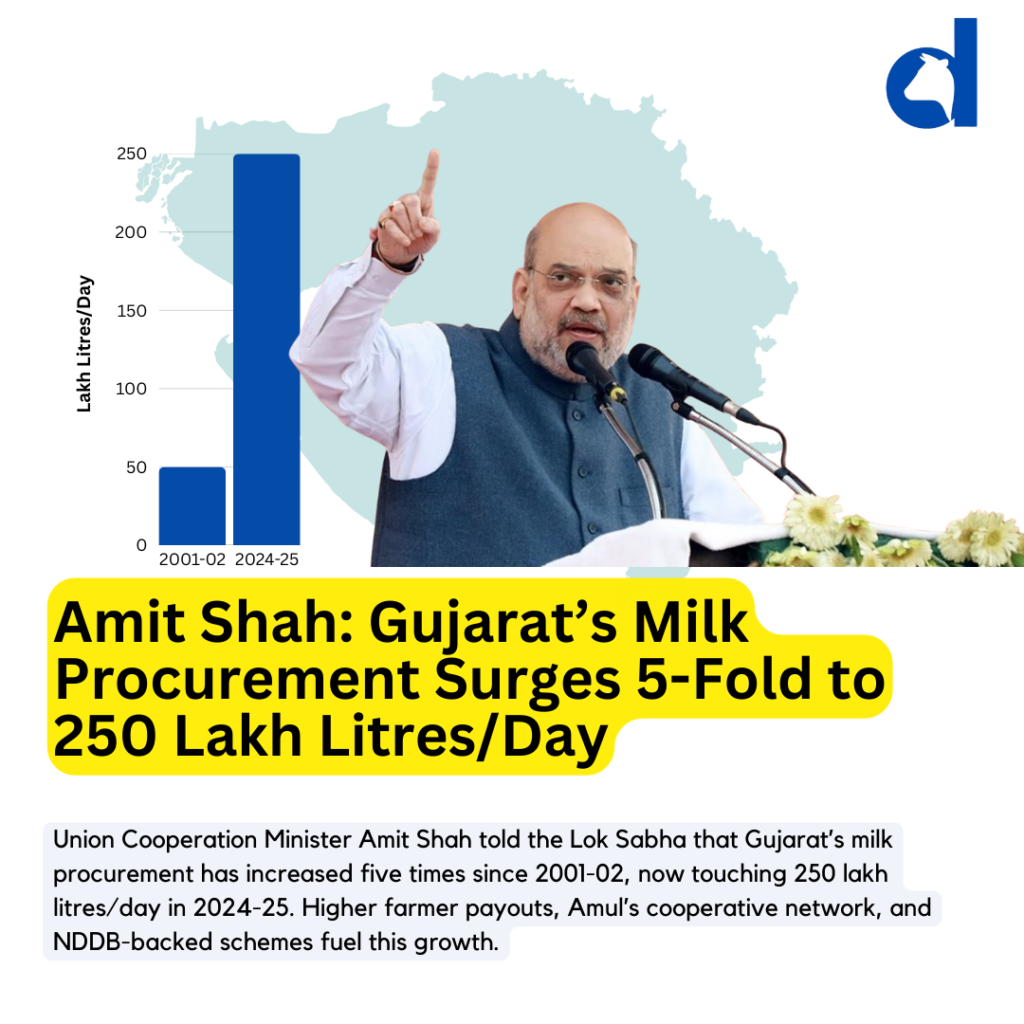Gujarat’s Dairy Growth Spotlighted in Parliament
Gujarat’s dairy sector has achieved remarkable growth, with milk procurement rising fivefold over the last two decades. In a written reply to the Lok Sabha on Tuesday, Union Cooperation Minister Amit Shah confirmed that daily procurement has jumped from 50 lakh litres in 2001-02 to nearly 250 lakh litres in 2024-25.
Rising Incomes for Dairy Farmers
Shah noted that the transformation is visible not only in volume but also in farmer prosperity. Milk procurement prices have increased by 140% in the last 15 years, climbing from ₹400/kg fat to ₹950/kg fat. This steady increase has supported higher rural incomes while enabling cooperatives to enhance chilling, storage, and procurement capacities.
Policy and Scheme Support
The Minister attributed Gujarat’s performance to targeted government initiatives combined with cooperative efficiency. Key schemes include:
- National Programme for Dairy Development (NPDD): In the past seven years, Gujarat received ₹315 crore in grants (₹515 crore project outlay). This helped install 2,052 bulk milk coolers, 4,309 automatic milk collection systems, and 1,000 milk adulteration detection machines.
- Dairy Processing and Infrastructure Development Fund (DIDF) and Animal Husbandry Infrastructure Development Fund (AHIDF): These programs backed processing plant expansion, UHT lines, and milk powder facilities, boosting Gujarat’s processing and value-addition capacity.
Such measures, Shah explained, have reduced post-harvest losses and modernised infrastructure, directly contributing to higher procurement levels.
Amul’s Cooperative Network at the Core
According to the National Cooperative Database, Gujarat today has 15,740 functional dairy cooperative societies, with GCMMF (Amul) leading the way. Amul’s vast network of 18 district unions and 36 lakh farmer members enables the procurement of around 250 lakh litres per day, making Gujarat one of the largest milk-producing states in India.
National Impact
Amit Shah underlined that Gujarat’s success reflects the strength of the Indian cooperative dairy model, pioneered by NDDB and exemplified by Amul. With expanding demand for value-added dairy products, exports, and sustainable practices, Gujarat’s trajectory will serve as a blueprint for dairy growth across India.
